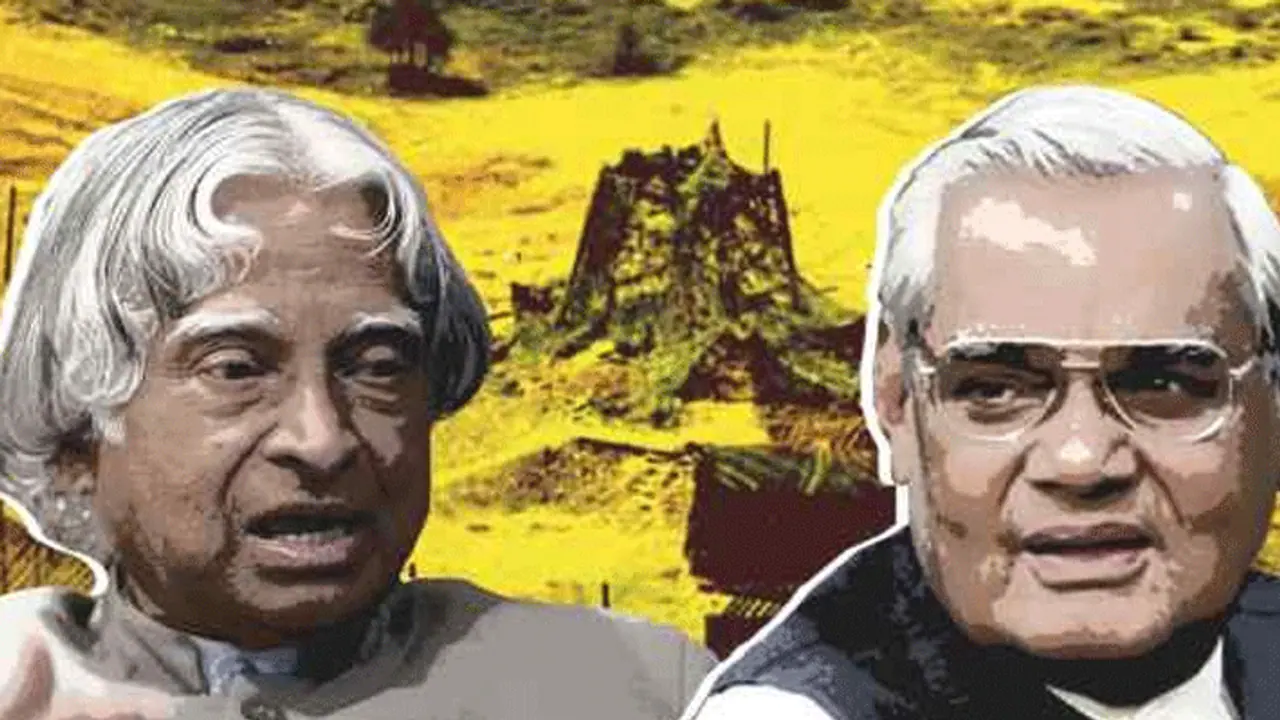On this day in 1998, India celebrated the success of ‘Operation Shakti’, testing five nuclear devices at Indian Army’s Test Range at Pokharan in Rajasthan
New Delhi:India is celebrating its National Technology Day today. It is annually observed on May 11 since 1998 to mark the day when India tested its first nuclear bomb at Pokharan and joined an elite club of existing and aspiring superpowers. The heroes of this feat were, apart from many scientists, late Prime Minister Atal Bihari Vajpayee and late President and India’s missile man APJ Abdul Kalam.
On this day in 1998, India celebrated the success of ‘Operation Shakti’, testing five nuclear devices at Indian Army’s Test Range at Pokharan in Rajasthan.
On Saturday, PM Narendra Modi gave due credit of India’s technological advancement to Vajpayee. “The patriotism and farsightedness of Atal Ji and his team have a major role to play in the success of tests of 1998. Atal Ji’s unwavering faith in our scientists proved valuable during that crucial time. It also demonstrated the difference a strong political leadership makes,” he tweeted.
Also read: Atal Bihari Vajpayee's 4 path-breaking decisions that changed the nation forever
Many feats on May 11, 1998
1. Operation Shakti-98, its original name, came to be popularly known as Pokharan-II to distinguish it from Pokharan-I in 1974. The latter was also called ‘Smiling Buddha’.
2. Pokharan-II was a series of five detonations: the first was a fusion bomb while the remaining four were fission bombs. The tests were initiated on May 11, 1998, with the detonation of one fusion and two fission bombs.
3. The five nuclear bombs were designated Shakti-I through Shakti-V.
4. The final test of deadly surface-to-air missile Trishul was concluded on this day after which it was inducted in to the Indian Air Force and the Indian Army.
5. While scientists were readying to test India’s nuclear might in Pokharan, India flew its first indigenous aircraft called Hansa-3, developed by the National Aerospace Laboratories (NAL). It was developed to train pilots, for sports, surveillance and photography. It was a two-seater light aviation craft.
India joined the elite “nuclear club” consisting of the UK, the US, Russia, France and China. India was not part of the Nuclear Non-Proliferation Treaty (NPT) and had to face stringent sanctions which Vajpayee’s deft leadership cushioned.
